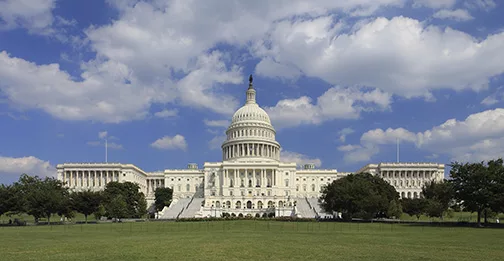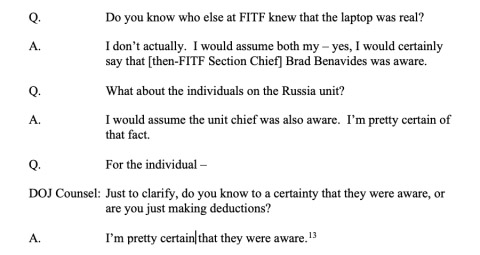Colorado’s Supreme Court has made a ruling to remove Donald Trump from the Republican Primary. The fact that every member of that high court was appointed by a Democrat and yet are trying to determine who the Republican nominee will be is a discussion for another day.
Trump will be on the primary ballot, but beyond that, both the democrats and the Republicans are getting a lot of what happened on Jan. 6 wrong, and yet no one is making the proper case to bring the entire discussion to a close.
According to the Colorado Supreme Court, or at least by a 4-3 decision, Trump is guilty of insurrection, and in their view so are the protesters and rioters who entered the Capitol or even didn’t enter the Capitol that day, like Trump.
Before pointing out why both sides are wrong and seemingly incapable of making the proper argument, let’s start by exonerating Mike Pence.
As Vice President, Pence was also the President of the Senate who presides over the ceremonial reading of the Electoral College votes on Jan. 6.
Trump and his legal counsel claimed that Pence could refuse to certify the presidential election.
Here is the exact language from the Constitution on the role of the President of the Senate:
“The President of the Senate shall, in the presence of the Senate and House of Representatives, open all the certificates and the votes shall then be counted; — The person having the greatest number of votes for President, shall be the President, if such number be a majority of the whole number of Electors appointed; and if no person have such majority, then from the persons having the highest numbers not exceeding three on the list of those voted for as President, the House of Representatives shall choose immediately, by ballot, the President.”
The only role for the President of the Senate is to open the certified Electoral votes from the states and count them.
That’s it. No authority to do anything else.
Federal law does provide for objections from Congress members, and this is where the rest of the country is getting this all wrong.
According to federal code in 3 U.S.C. section 15, “‘the President of the Senate shall call for objections, if any.’ Any such objection must be presented in writing and must be signed by at least one Senator and one Representative. The objection ‘shall state clearly and concisely, and without argument, the ground thereof….’”
Then there is a process of addressing those objections one state at a time, and no other state is counted until the objections have been satisfied by the chamber.
How does that clear up the issue of what happened on Jan. 6?
Because the representatives and senators had a choice to make that day on whether or not to accept the results or object to them.
The protesters-turned-rioters were not seeking to overturn the election or to replace the government. An insurrection is an act revolting against the government.
Those who participated on Jan. 6 were not seeking to overthrow the government.
Quite the contrary, they were seeking to talk to their elected representatives and encourage them to make the choice the protesters wanted them to make, which was to object to the certification.
It is not illegal for representatives to object. It is actually written in the federal code on how to object.
Not only were those who protested that day exercising their right to redress the government for grievances, but they were also asking their elected officials to do the same thing.
They became rioters when they trespassed and damaged property, crimes they should face in a court.
But insurrection? Not even close.
Had the Constitution or federal code stated that there was no role for the members of Congress to play other than accepting the results without question, then perhaps a case could be made.
And whether others agree or disagree with the protesters that day, it is clear in code that members of Congress have the right to object to the results, especially if they believe there were questionable election practices.
The Constitution goes on to state that if Congress can’t decide on a president by Jan. 20, then the vice president becomes acting president until Congress can decide on a president.
Clearly, this push that there is a timeframe that must be kept is false. If it takes longer to determine the winner of an election, there is a mechanism already in place to handle it.
But asking your elected representative to perform a role stated in federal code by definition cannot be insurrection. It is not illegal to ask your representative to do what they have the legal authority to do.
An insurrection would have been to overthrow the government, not to ask the government to follow the procedures that already exist.
It doesn’t matter whether these people thought Trump was cheated out of the office or not. Like all of us, they have a right to share those concerns with their elected officials.
The only time to make their case is before certification takes place.
While I do not support what happened that day, it was not insurrection. It was an attempt to make a legal objection. Members of Congress had a choice, and asking them to make it isn’t illegal.
Earl Watt is the owner and publisher of the Leader & Times in Liberal, Kansas. Watt started his career in journalism in 1991 at the Southwest Daily Times. During his career, the newspaper has won a total of 17 Sweepstakes awards from the Kansas Press Association for editorial content and 18 Sweepstakes awards for advertising. Watt has been recognized with more than 70 first place awards for writing in categories from sports and column to best front pages, best sports pages and best opinion pages. Watt is a member of the Sons of the American Revolution and is the descendant of several patriots who fought for America's freedom and independence.





